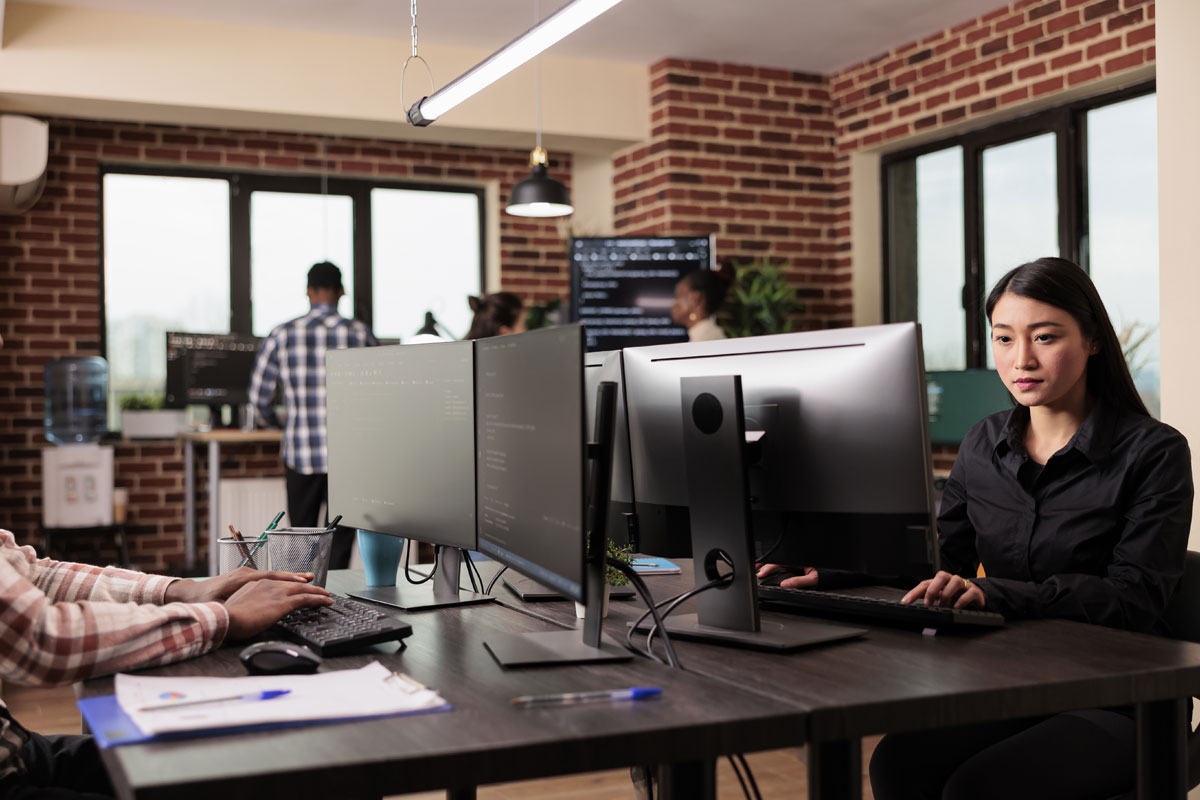Choosing the right technology is critical to the success of your small- or medium-sized business (SMB). This is why you should invest in tools that ensure hassle-free day-to-day operations and provide adequate support to help you achieve your goals.
Purchasing computers is a given, but one of the earliest decisions you’ll have to make is whether to procure laptops or desktops. Either option has its pros and cons, so evaluate each according to these considerations before choosing what to use for your business.
Mobility
More than ever, mobility is a prime consideration in choosing which devices to purchase. The COVID-19 pandemic has forced employees to work from home or anywhere in isolation, and this setup has required workers to have computers that they can take anywhere.
Laptops seem to be the obvious choice since they are sleek, slim, and light enough to be carried around. But modern desktops are not far behind in portability. There are pretty small and slim desktops in the market, including those with built-in screens. Apple even has an all-in-one desktop line that has all the circuitry built into its monitor or base, creating a neat aesthetic.
Affordability
Don’t consider only the upfront cost of devices. It may be cheaper to buy a desktop computer than a laptop with the same specifications, but the former will need peripherals such as a keyboard and a mouse, while the latter won’t. And because teleconferencing apps like Zoom have become a necessity in a decentralized workforce, you may need to purchase a separate webcam for your personal computer (PC) to ensure good video quality. Simply put, computers may be cheaper upfront, but their associated costs can make them as expensive top-of-the-line laptops.
Security
While laptops are highly portable, they’re also easier to steal or lose than bulky, immobile desktops. If you choose laptops, you will have to deal with more than one type of security concern. Not only will you have to prevent device theft, but you’ll also have to ensure that they’re protected against cyberattacks.
Desktops and laptops generally have operating systems with built-in antivirus software, but that is not enough. Whatever device you choose, make sure that you bolster their endpoint security to prevent malicious actors from accessing your data. This is especially critical for businesses that have a remote workforce, as cybercriminals will exploit IT infrastructure weaknesses and poor cybersecurity habits.
Power
PCs are typically faster and can handle heavier workloads than laptops because they have powerful, full-size parts that laptops don’t. Even when laptops come with processors that are of a similar model number to a desktop, they’re rarely as powerful.
Consider the type of work you do and how much computing power you need. If you will only create or edit documents, access web apps, and join video conference calls once in a while, then laptops will suffice. But if you handle heavy files and do tasks like video editing and 3D modeling, then you’ll definitely need a powerful computer to blaze through your workload without a hitch.
Upgrades
Desktop parts can be upgraded separately, while laptops need to be replaced entirely to be upgraded. For instance, you can easily add more RAM to your PC to get it back to optimal speed if it starts to become sluggish — something that you can’t do with most laptops.
If you predict that your computing needs are likely to stay the same in the next few years, then using a laptop with the same set of specs for the long term shouldn’t be a problem. But if you see your business scaling up in the near future, then choosing laptops might be the better option.
The verdict
Technology exists to help people solve problems. So whether you choose laptops or desktops for your SMB, it will depend on which technology will better address your business needs. If you’re running a start-up with a very tight budget, then affordability will be your prime consideration. If your employees need to work from home, then choosing laptops will make operations and onboarding easier. In most setups, businesses use a mix of both desktops and laptops to do a wide variety of tasks.
Deciding on what tech to invest in requires a thorough evaluation of your priorities, so don’t make choices overnight. It may also benefit you to seek expert advice in determining which equipment is best suited to your business. At Complete Technology, we have a team of specialists who can help you select the tech that will best match your requirements, optimize costs, and mitigate risks. Learn more about our IT consulting services by calling us at 816-398-7322.







